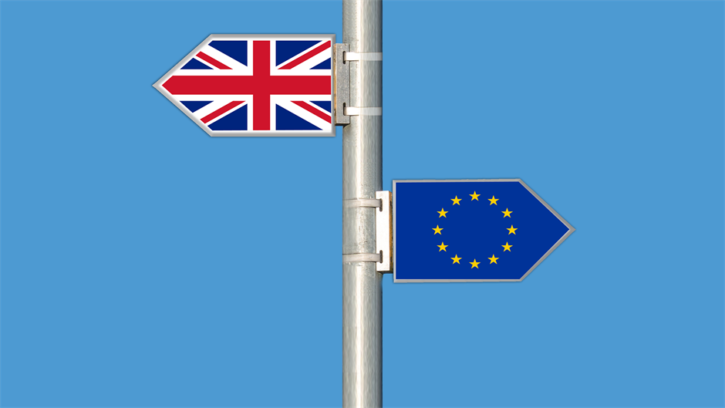
British lawmakers have temporarily seized control of the Brexit process from Prime Minister Theresa May, in a rare move that puts lawmakers in the driving seat.
MPs defied the government on Monday evening to vote 329 to 302 in favour of an amendment giving them control of Parliament's agenda on Wednesday and clearing the way for a series of alternative votes to May's widely criticized withdrawal agreement with the European Union.
Come Wednesday, lawmakers could vote on as many as seven different options – which might include a second referendum, crashing out with no deal, and a Norway-style deal with the EU, giving the UK full access to the single market and the European Free Trade area.
Thirty Conservative lawmakers defied the government whip to vote in favour of the amendment, which was proposed by Conservative remainer Oliver Letwin, a fact that will be hard for Theresa May to ignore.
The rebels included three government ministers, one of whom – now ex-business minister Richard Harrington – tweeted his resignation letter as the amendment went to a vote.
Parliament rejected another amendment which called on the government to hold a vote on a no-deal Brexit if the UK is a week away from crashing out of the European Union.
Speaking after Monday's votes, Labour leader Jeremy Corbyn congratulated Parliament for “taking control” of the Brexit process.
“The Government's approach has been an abject failure and this House must now find a solution,” Corbyn said.
May, who is still hoping to pass her twice-rejected Brexit deal, told the House of Commons earlier Monday that there was not enough support for her deal to bring it back for a third meaningful vote. The Prime Minister also said she could not “commit the government to delivering the outcome of any votes held by this House. But I do commit to engaging constructively with this process.”
“Slow Brexit”
May’s de facto deputy, David Lidington, added that he hoped lawmakers would have another opportunity to vote on May's Brexit deal later this week, but the deal still lacks the numbers needed to pass it. As of Monday, the Democratic Unionist Party (DUP), which props her minority government, remained opposed to backing it.
In a bid to win Brexiteers over, May warned on Monday that any Brexit option that is not the one she negotiated with the EU would result in a “slow Brexit.”
“A slow Brexit – which extends Article 50 beyond May 22, forces the British people to take part in European elections and gives up control of any of our borders, laws, money or trade – is not a Brexit that will bring the British people together.”
Britain is still scheduled to crash out of the EU on April 12 if May's withdrawal deal is not passed and Britain's government fails to provide new proposals for a way out of the impasse.
On Monday, the European Commission announced that it has prepared for an “increasingly likely” no-deal scenario.
Guy Verhofstadt, the European Parliament's Brexit coordinator, tweeted on Monday night that the passage of the Letwin amendment represented an “opportunity to build cross-party cooperation leading to an enhanced political declaration [and] a closer future relationship.”




